By Scott Rechler | Director & CEO of LearnServe International
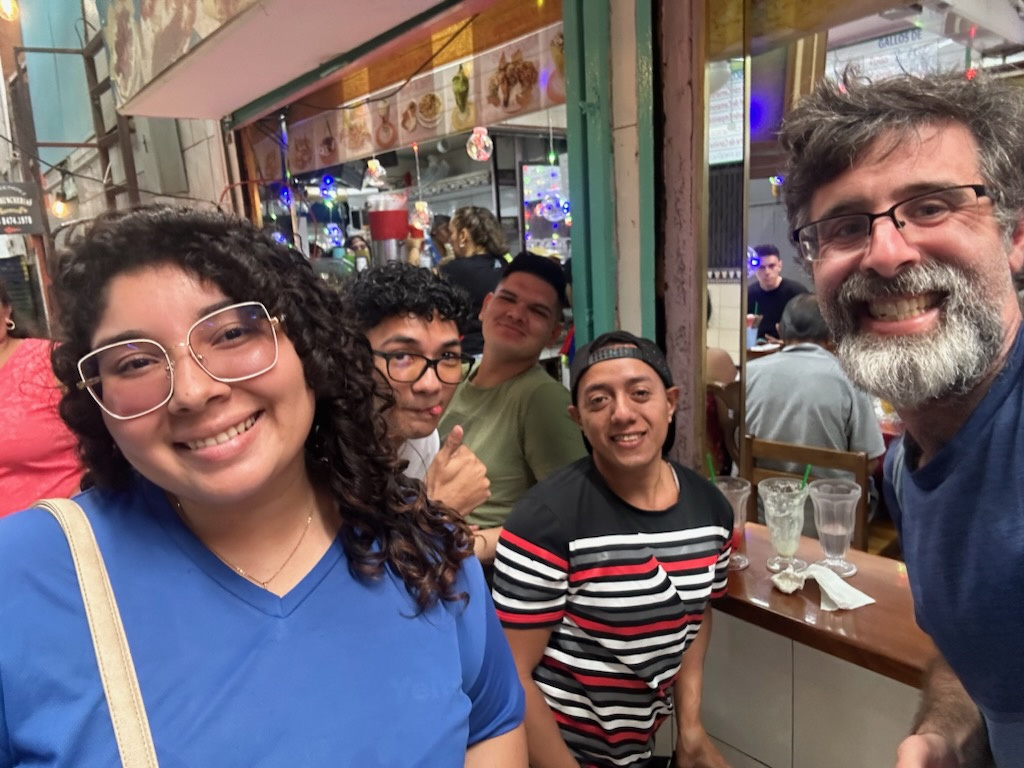
Pero es que nos conocemos,“ lamented Jessica mid-way through our workshop last weekend. “It’s that we know them.”
Jessica went on the explain that several months ago, young people who she had grown up with – individuals who she and her husband have consistently tried to help with food and money as they are able – tried to break into their house. It wasn’t just the attempted robbery that worried her, amidst escalating crime in her neighborhood. It was that she and the individuals breaking into her house knew each other.
Jessica realized that for some individuals living in vulnerable communities, generational trauma combined with the allure of money and belonging offered by local gangs, simply proved too hard to shake. Nevertheless, Jessica wondered, could she help other young people in similar circumstances chart a different future?
Along with with Jose Daniel Alvarado, Jessica Quesada is a lead facilitator with the nonprofit organization Dale Una Mano a Costa Rica. Both are alumni of Dale Una Mano’s youth development programs. Together they are leading the inaugural cohort of 25 LearnServe International Fellows in Bataan, a town in Limón Province, Costa Rica, helping these young people grow as changemakers.
Last week I had the opportunity to spend four days with the Dale Una Mano founder Orlando Carvajal Valdes, his leadership team, and their program participants. They walked me through the challenges that young people face in their community, and the ways that Dale Una Mano is helping them overcome those challenges through leadership and service.
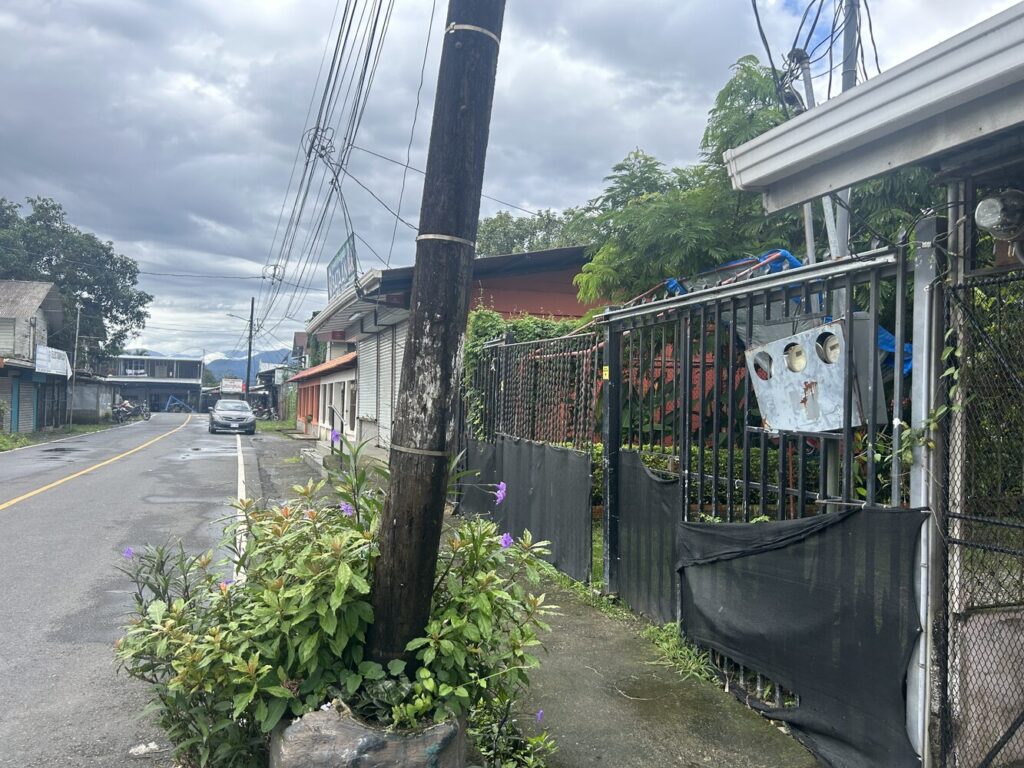
“Es que no se ven así,” reflected Ligia Alpizar of the United States Embassy in Costa Rica as Orlando and I shared a bit more about the young people we work with in Costa Rica and the U.S. “It’s that they don’t see themselves that way.” They don’t know what’s possible, what they’re capable of.
Orlando nodded in agreement.
Bataan is a town in the heart of Limón Province, 45 minutes by bumpy dirt road from Costa Rica’s Caribbean coast. Surrounded by banana and pineapple plantations, the community was the center of the United Fruit Company’s complicated investments in the region, starting in the late 1800s. The region also includes some of Costa Rica’s largest indigenous and afro-descendent communities.
As he introduced me to the neighborhoods that Dale Una Mano serves, Orlando explained that the region recently went from being regarded as a region en pobreza (in poverty) to one seen as vulnerable due to growing incidences of drug addiction, gun violence, and gang activity. The reality young people are living in, he continued, makes it much harder for young people to imagine a different future for themselves.
Though it was my first time in Bataan, the conversation felt familiar. I remember my first walk through the Santa Ana neighborhood 15 years ago with Domingo Alonso, our longtime LearnServe partner in Paraguay. Santa Ana’s residents live in a floodplain on the periphery of Asuncion, Paraguay’s capital city, near the municipal landfill and with little formal urban infrastructure. Young people in Santa Ana are surrounded by a similar constellation of challenges and pressures – few economic opportunities, drugs and violence, untreated health and mental health challenges.
And it’s not so different from the conversations I’ve had with LearnServe students in Washington, DC over the years. Last fall I sat with two students as they described ducking from gunfire on their way to school, and how they personally knew classmates involved in the city’s spate of carjackings. Other students opened up about the trauma they faced a home, their difficulties in finding a job, the fights breaking out at their schools, and how hard it was to break any of those cycles.
In each community, the adults I spoke with shared how even the most motivated young people don’t necessarily know what opportunities exist beyond their own neighborhoods. Others don’t feel confident they could ever reach those opportunities, even if they tried. Others end up subsumed in the same social problems they hoped to overcome.
All of them were asking themselves: How do we help young people see a different future for themselves?
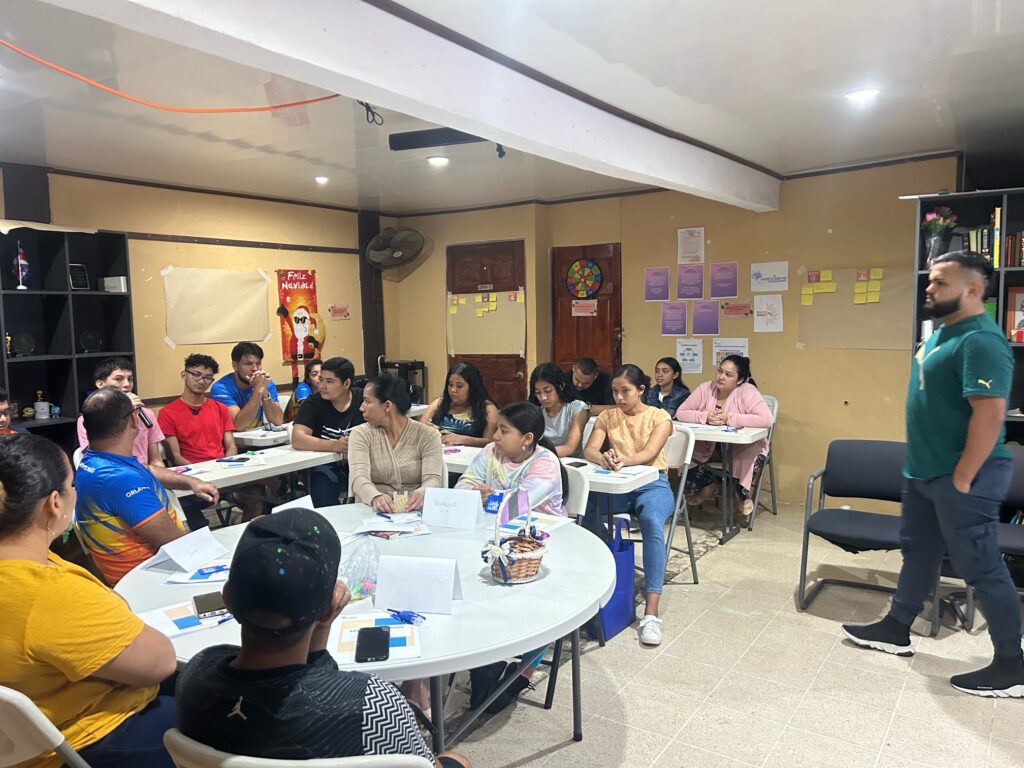
Of course this is just part of the story in each of these communities.
Jessica and Jose Daniel are themselves graduates of Dale Una Mano a Costa Rica. Dale Una Mano (literally “Lend a Hand”) is a community-based youth development nonprofit that helps young people grow as changemakers through volunteerism and leadership development. Founded in 2016 by Orlando Carvajal, the organization reaches 1,200 children and youth annually through their service projects, and has graduated 180 young leaders through their longer format programs. In November, with support from a United States Embassy grant and training and curriculum materials from the LearnServe team in DC, the Dale Una Mano team kicked off their first cohort of LearnServe Fellows in Bataan.
Jessica shared that when she first joined the organization, her family didn’t understand. Why, they wondered, was she spending so much time on volunteer projects and workshops — instead of school, work, or family responsibilities? And late at night and on weekends?
Over time, their take on her involvement changed: they saw the value of the experience; her parents encouraged her siblings and cousins to join her; they even helped cook food for program events.
As Jessica opened up about her own experiences during our workshop last weekend, others in the room began to share similar experiences. Hakinen recalled being a quiet and shy teenager who wanted to good in his community but wasn’t sure how – and who then found his voice through Dale Una Mano. He is currently studying industrial engineering and environmental engineering. Ashler described how he has gone out of his way to recruit friends to join Dale Una Mano, after having found a community that was at the same time professionally enriching, personally fulfilling, and fun. Ashler is working on a project to teach computer literacy to his peers.
In many ways the young people drawn to Dale Una Mano – like the young people drawn to LearnServe’s programs in Washington, DC or Domingo’s Centro Comunitario Cultural in Asuncion, Paraguay – are predisposed to leadership and service. But they often lack the family support or outlets at school to get more involved. Were it not for spaces like these, they might have sought out community and purpose in less constructive ways. Because of spaces like these, these young people have charted new paths for themselves – and for all those following in their footsteps, who look up to them as role models.
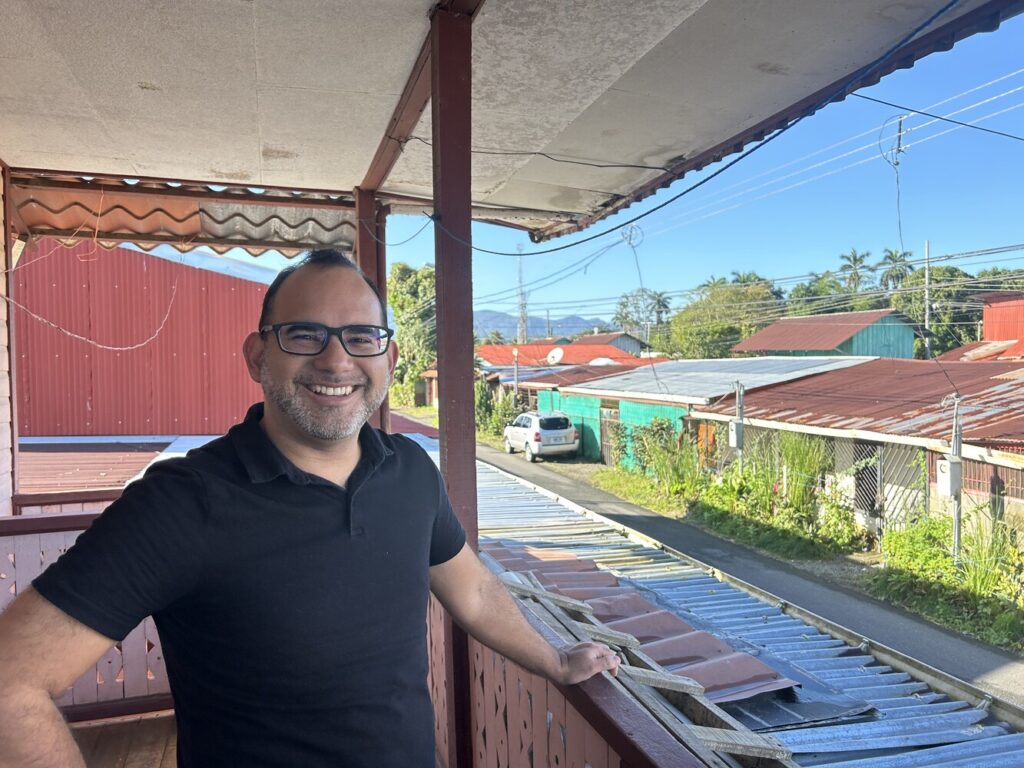
I have spent most of my career surrounded by social entrepreneurs – through my work with Ashoka, adjacent to Halcyon, and of course LearnServe’s community of changemakers. I am always amazed by their big, creative ideas for systemic change.
Recently I have been intrigued by the subset of social entrepreneurs like Orlando and Domingo who are both deeply connected to their communities and deeply committed to unlocking the leadership potential of others. Their scale (so far) may not be big, but their impact is deep – both through the lives they touch directly, and the ripple effect on their communities.
While I have struggled to find a word that captures this subset of social entrepreneurs (ideas welcome!) dedicated to youth empowerment, I have begun to see trends in what they have in common. These youth empowerment social entrepreneurs
- believe in young people, even when those young people may not yet believe in themselves
- are from the community they are working in, and at the same time have the ability to see their community – and its assets and opportunities – in a way that others don’t
- devote all of their discretionary time – especially evenings and weekends, when young people are more free – and resources to this work
- mobilize every available opportunity for their young people, often transcending resource scarcity, and with a consistency or programming rarely offered by external institutions
- are weavers of community with – at the risk of mixing metaphors – the magnetic personality that brings people together in deep, meaningful ways
- invest in growing leadership from within their organizations
In spite of other personal and professional commitments, these individuals are singularly dedicated to ensuring that every young person has an adult in their life who “gets” them and who they can lean on, as well as a physically and emotionally safe community of peers, to support them in reaching their full potential.
I have met enough changemakers to know that individuals like Orlando and Domingo – and organizations like Dale Una Mano and the Centro Comunitario Cultural – are more common than we may think (though not always visible.) But they are far from ubiquitous in every community.
My conversations with Orlando last week left me wondering: How do we nurture organizations like these in a way that is sustainable? How can we connect these leaders and their teams to each other to share ideas, resources, and opportunities to grow? How do we support them in growing their next generation of leadership? And how do we lay the groundwork for there to be more Orlandos and Domingos in the world?
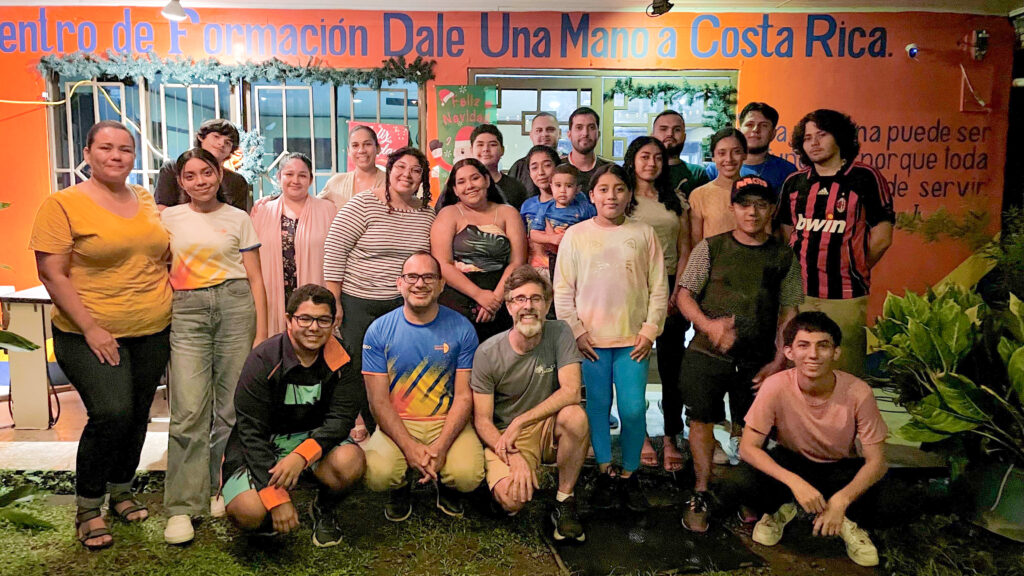
I don’t pretend to have all the answers, but I am proud that LearnServe is part of the conversation.
Building on our 20 years of experience empowering young changemakers, we are expanding partnerships with community-based organizations committed to grassroots leadership development.
(In this article I have focused on our collaboration with Dale Una Mano in Costa Rica and the Centro Comunitario Cultural in Paraguay. I encourage you to check out the LearnServe Blog to learn more about our work with another LearnServe partner, the Njira Skills Youth Training Centre in Lusaka, Zambia, and its director japhet Chulu.)
We are excited to bring to each partnership LearnServe’s unique approach to social entrepreneurship education. We are also excited to bring to each partnership a degree of humility – the recognition that every local context is different, that our approach grown in the U.S. is not the only approach, and that each facilitator brings a wealth of innovation and expertise. We are in the early stages of growing a community of youth development professionals who can share best practices, curriculum adaptations, and new approaches to inspiring young people across continents.
And through their work, we hope to grow a new generation of locally-grounded, globally-connected young leaders committed to driving positive social change in their own communities – and far beyond.
